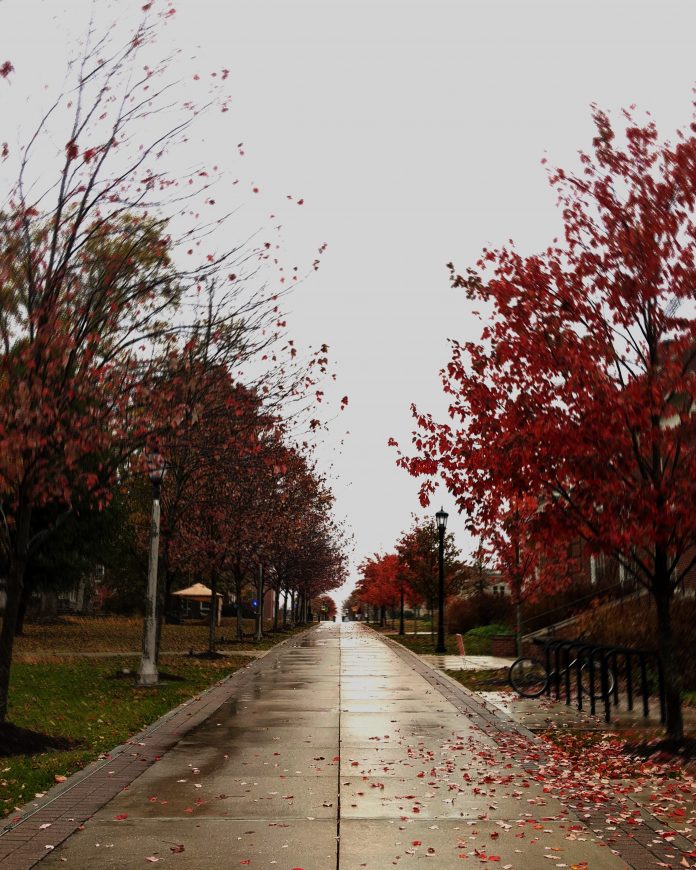
DePauw plans to examine the following points: diversity and equity, sustainability and COVID-19 policies. On Thursday, Feb. 18, President White and the Strategic Planning Committee held a virtual symposium entitled “Reimagining DePauw’s Future Together,” where they could address these topics and more with students.
Prior to meeting with students, White met with faculty and staff to discuss consistent themes that formed into 10 “thematic working groups.” These themes included:
A) The Liberal Arts and Career Connections
B) Experiential Learning and High Impact Educational Practices (i.e. research, internships, etc.)
C) Student Belonging and Community
D) Student Wellness
E) Faculty and Staff Belonging, Community and Wellness
F) Diversity, Equity and Inclusion
G) Community Connections
H) Tuition Policy
I) Deferred Maintenance
J) Short-Term Financial Austerity Tactics
Three overarching goals emerged from these working groups: institutional equity, institutional renewal and institutional sustainability.
Institutional renewal refers to ensuring ongoing, transparent and collaborative assessment of curricular and co-curricular programs with the changing interests of diverse students.
“We’re committed to being a liberal arts institution that is reflective of the diversity of interests and perspectives that our students bring,” White said. “We also want to make sure we prepare you... for jobs that we know exist and jobs that have not yet been imagined.”
Institutional sustainability refers to the sustainability of DePauw to the future. This includes maintaining academic reputation, liberal arts reputation, community engagement, recruitment of students across the country and internationally, and ensuring the diversity of faculty and students.
“DePauw is 180 years old. We want to make sure we’re still here 180 years from now,” White said.
Institutional equity is defined through the lens of the student experience and seeks to ensure that students are able to belong and have the appropriate support. For this overarching goal, White is looking for feedback from students for the “idea stage” before generating action plans.
“We’ve heard from our students of color and international students that DePauw doesn’t always feel like their institution,” White said.
The main objectives in this idea stage include: increasing student belonging, embedding student support, enhancing experiential learning initiatives and cultivating distinctive leadership development for all students.
One of the criticisms highlighted by students was the use of IDs to track students’ locations across campus. Students maintained that, while they understand that this is a preventative measure to ensure that no COVID-19 procedures are violated, it is counterproductive to DePauw’s focus on developing students as leaders and taking personal responsibility.
Another issue brought up by students concerns international students. With the international student services coordinator recently leaving, these students have felt that the international student experience has been declining due to the lack of guidance and advice specific to Visas, taxes, etc.
In response to this, White stated that everyone on campus needs to be committed to supporting international students in addition to the dedicated international student advisors.
“I never want us to be a campus where international students think that there’s only two people that they can go to for support,” White said.
White also stated that there are currently 4-5 designated school officials (DSOs) for international students who can answer questions about working, visas, traveling home, etc. and this information will be on the DePauw website. “We have already identified the DSOs, so I want to make sure that international students to whom it is they can go,” White said.
The next criticism students brought attention to were “forced cliques” at DePauw that have emerged due to not being able to visit other residence halls.
In response to this, White explained the many efforts DePauw will make toward allowing students to have more authentic and organic engagement. DePauw will be opening “living rooms” in various campus buildings to allow for more natural opportunities for students to connect. These living rooms can be found at the Lilly Center, Union Building, CDI, Julian, Harrison, Asbury and the GCPA. Some of them will have big-screen televisions and others will have games. DePauw is also working on some social opportunities for students.
“This term is going to feel a whole lot different than the fall,” White said.
Lastly, students brought up that it feels like DePauw is more focused on the consequences that come with breaking COVID-19 rules than maintaining students’ health. They also questioned why DePauw can’t provide COVID-19 tests per request and made an observation that athletes seem to be disproportionately tested to non-athletes.
Stevie Baker-Watson, associate vice president for campus wellness, addressed these concerns. She explained that there are two different types of testing--symptomatic and asymptomatic. Those who require symptomatic testing are referred to the DePauw Wellness Center. For asymptomatic testing, a diminishing pool of students is used to randomly select students for testing.
Further, DePauw is sponsoring intercollegiate athletics and must fulfill requirements through the NCAA to follow testing requirements, which are based on transmission risks that the sports science institute determined was appropriate based upon the different types of sports.
“Right now, we are in the process of testing at least 10% of our on-campus population on a weekly basis,” Baker-Watson said. “However, we are looking at other testing options that will actually allow us to increase the amount of testing that we do.”
Regarding student consequences, Vice President for Student Academic Life, Alan Hill, stated that out of 750 students on campus and 90 commuter students, less than 10 students were asked to change from on-campus to remote learning status.
“All that has specifically to do with them blatantly disregarding health and safety policies,” Hill said. “This semester, we have students who are in the cycle who we need to have some discussions [with], but at this particular time, we have not sent a student home.”
According to Hill and White, 85% of students are following the COVID-19 regulations.
“Our focus isn’t just to send students home, our focus is to allow the community to work together so that we can all be here safely,” Hill said.


